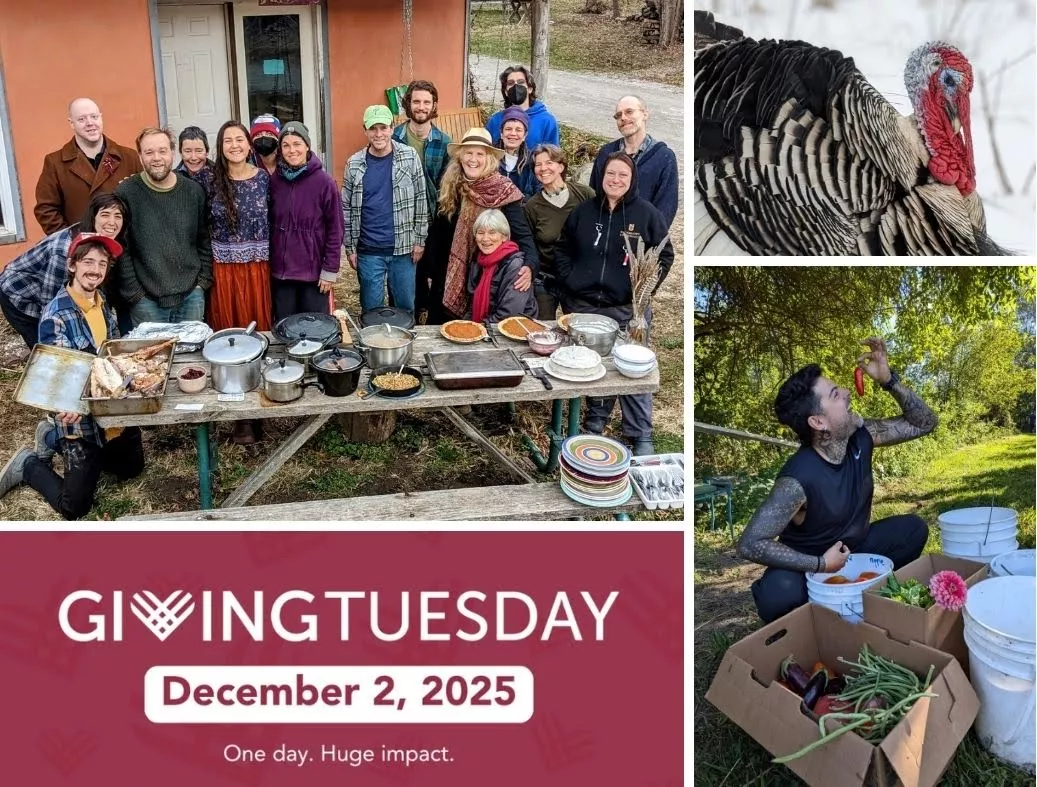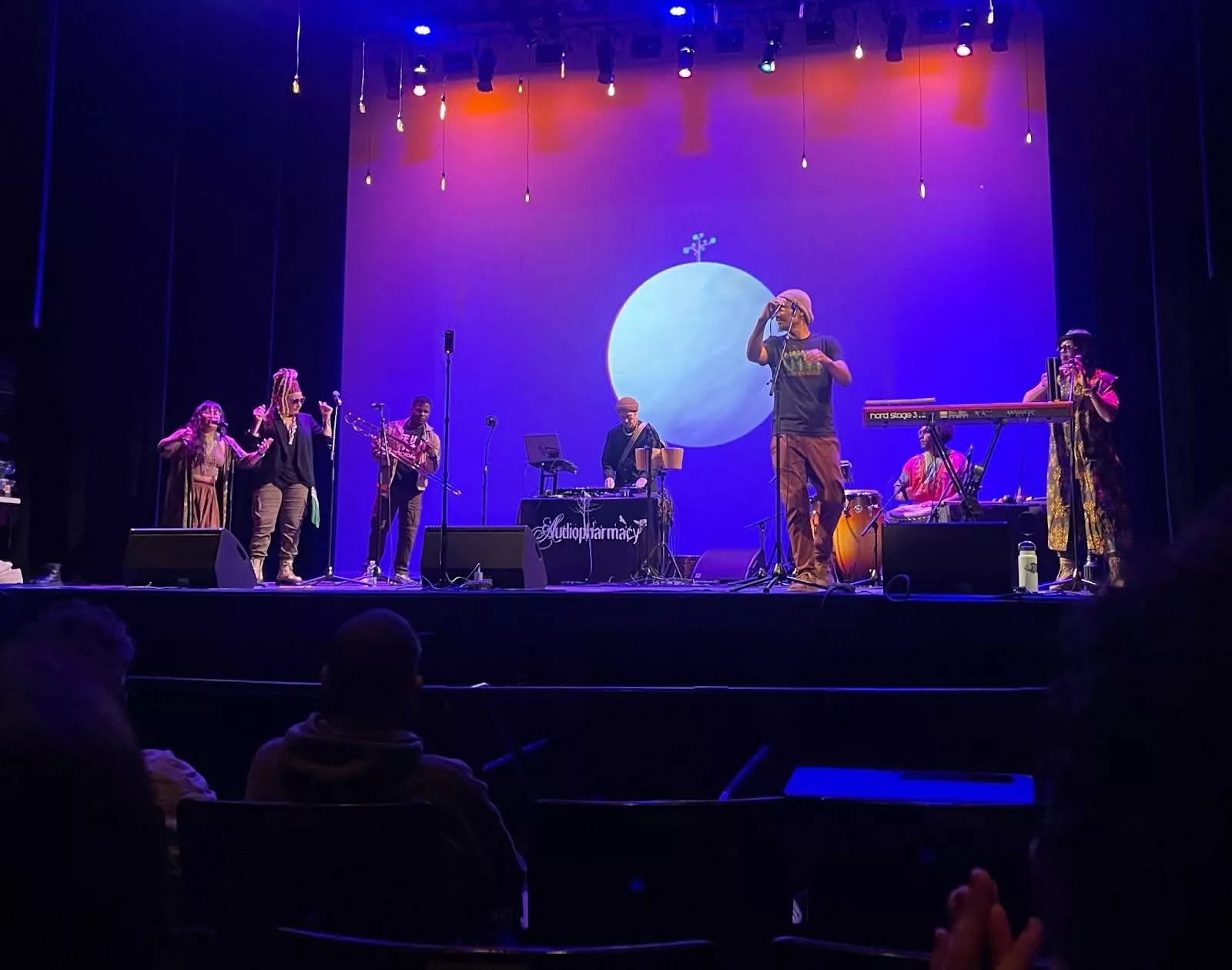We all have a sense that the truth about Thanksgiving is much darker than what we learned in school: the myth of harmonious co-existence between settlers and indigenous people is a sanitized and whitewashed story which obscures a tragic history of colonization.
Yet, despite this awareness, many of us (myself included) come together on the fourth Thursday of November with friends and family to share in the year’s harvest. This coming together, in and of itself, can be a wonderful thing. Celebrating the harvest, and the turning of seasons is an essential human activity that has the power to strengthen community bonds and re-inforce our place in the natural world.

If any of us traced our lineage back far enough, we would find our ancestors celebrating the harvest in their own unique way; with foods, stories, games, and songs cultivated in a rich, place based, cultural tradition. As the season turns from the peaks of abundance, light, and long working hours we share collectively in the bounty of the year. We indulge in good food and company of our family and community to lift our spirits as we head into (what has historically been, and still is at Dancing Rabbit) a time of darkness, cold, hunkering down, reflection and preparation for the year ahead.
There is a tragic irony in the fact that our country’s predominant harvest festival is rooted in a history of dispossession of the people who sustainably tended this land for millennia. Though, grappling with these truths is a crucial step in healing the rift between our present way of life and the natural world.
While I won’t go into the full history here (resources below), the original Thanksgiving feast represented a brief moment of precarious cooperation between Puritan settlers and the indigenous Wampanoag Nation. This moment was preceded by an epidemic which decimated indigenous peoples (the only reason the Puritans were able to settle), taking of slaves to Europe and ransacking of graves and store houses by settlers. Afterwards, there were countless broken treaties, genocide, forced removal and a near complete colonization and destruction of the world indigenous people inhabited for millennia. In spite of these immense hardships, the history of Native Americans is also one of great strength, resilience, and revitalization: rooted in values that resonate with so many of us: respect for family and elders, deep care for the land, and an obligation to do right by the next generation.
So how can we resist perpetuating harmful narratives and re-imagine Thanksgiving in a way that honors the true history? While I’m still grappling with this myself, there are many examples of Indigenous resistances to Thanksgiving that we can look to for guidance.
One that our community has started looking to is called Truthsgiving. This is a movement created by the indigenous led Great Plains Action society. It invites us to reject colonial holidays by learning and sharing the real stories of indigenous struggle, resistance and triumph, and performing acts of mutual aid and love to support folks in our community. They have an easy to follow pledge, as well as tons of great resources. (linked below)

It’s in this spirit that this November, Dancing Rabbit members have undertaken two separate week long mutual aid trips to indigenous led land-back, community building, and rematriation* projects: one to help build an ecovillage in Alabama, and one to establish a community center in Iowa City. This is not just because of Truthsgiving: there’s been a growing interest from Rabbits in exploring ways to step into meaningful allyship with our indigenous neighbors.
To support these types of activities we recently launched the Mutual Aid, Networking Building, and Activism (MANA) fund. The aim of this fund is to support Rabbits in self-organized excursions with the goals of building regional solidarity (not only with our indigenous neighbors, but that is certainly a part of it), working with inspiring projects and vulnerable communities, and advocating for positive and holistic social change. In order to create a broad and meaningful impact we need to be building mutually supportive relationships with values-aligned people, farms, projects, communities and organizations in our region, and beyond. Ecovillage projects like Dancing Rabbit are one part of a diverse web of initiatives working towards a sustainable and just future.
With this year’s Giving Tuesday campaign we will be directing 100% of donations to the MANA fund. Our goal is to raise $5,000, this will allow us to fund 10-50 excursions and make headway in building regional solidarity. You can help make this possible by donating now through December 2nd. Thank you for considering!
In community,
Eric Mease
Villager // Land Steward // Development Lead
*ReMatriation : Returning the sacred to the Mother; reestablishment of indigenous landscapes, bringing back indigenous traditional ecological knowledge, and giving stolen power back to the feminine.
Learn about Truthsgiving, explore some great resources, and take the pledge here.
Short video about the origins of Thanksgiving here.
